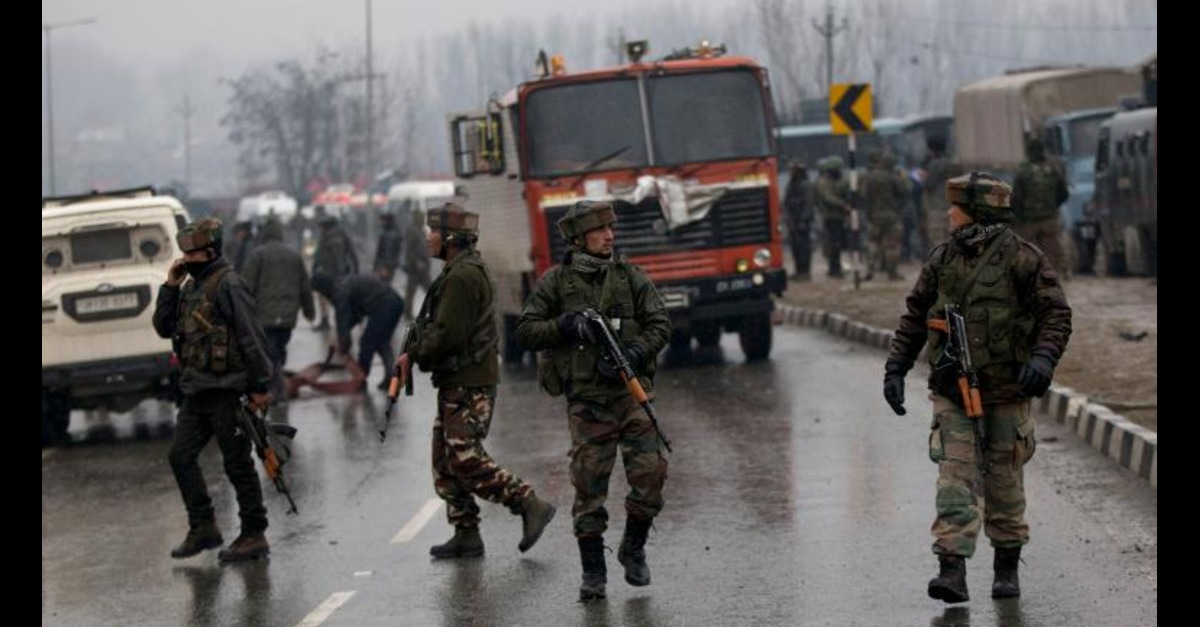Introduction:
On 22 April, 2025, few militants attacked in the Baisaran Valley near Pahalgam, Jammu and Kashmir which resulted in death of at least 26 tourists and over 17 people were seriously injured. This tragic incident is one of the deadliest in the region in recent years and completely shaken the nation. Few critical concerns are raised regarding the state responsibility, security preparedness, and the broader implications for Kashmir’s tourism driven economy.
Background:
The attack is claimed by the Pakistan-based militant group The Resistance Front (TRF)—a proxy of Lashkar-e-Taiba (LeT). The attack has raised urgent questions about security preparedness in one of India’s most sensitive regions.
The attack came just weeks before the peak summer tourism season, the assault not only highlights the persistent threat of cross-border terrorism but also underscores systemic vulnerabilities in protecting civilians in conflict zones.
After revocation of special status of the Jammu and Kashmir in 2019, the Indian government framed the move as a step toward integration and economic revival, promoting tourism as a pillar of “normalization.” Pahalgam, a visually attractive town in Anantnag district, became a symbol of this campaign.
However, irregular attacks persisted. In 2023, militants targeted a bus carrying Hindu pilgrims in Reasi, killing nine.
The TRF claimed the attack was in opposition to the alleged settlement of non-locals in the Kashmir Valley, which they perceive as an attempt to alter the region’s demographic composition.
Security analysts warned that remote areas like Baisaran, are only accessible by foot or horseback posing, logistical challenges for surveillance. Despite these risks, the government prioritized tourism-driven economic recovery and inaugurated various infrastructure projects in the valley.
Key Points:
State Liability: The Indian Constitution guarantees the fundamental rights to life and personal liberty under Article 21. However, the State’s failure to prevent such attacks raises serious questions about its responsibility to safeguard its citizens and visitors.
Security Oversight: Despite the significant presence of security forces in the region, such a large attack was successful and raises serious concerns about the intelligence failure and the weaknesses about the intelligence information gathering and the coordination between various agencies of the country and the on-ground danger.
Impact on Tourism: Kashmir is one of the states in India who’s economy relies on tourism. This attack has led to mass cancellations of bookings in the region. And new return flights are added to help and accommodate the tourists who want to fly back to their homes. This incident threatened to undo years of efforts to project Kashmir as a safe tourist destination.
Diplomatic Escalation:
Pakistan ties: India downgraded diplomatic relations, expelled Islamabad’s ambassador, and suspended the 1960 Indus Water Treaty—moves reminiscent of after the 2008 Mumbai attacks. These actions signify a significant deterioration in India-Pakistan relations.
International alerts: The U.S. and U.K. raised their travel advisories for Kashmir; several European tour companies halted planned trips through 2025.
Recent Developments:
Investigation: the NIA (National Investigation Agency) has initiated the probe into the attack and two suspected TRF operatives were arrested in Pulwama district. And the Securities Agencies have released sketches of three suspected militants involved in the attack. And believed to be linked with Lashkar-e-Taiba.
Security Measures: In the aftermath, security is increased across Kashmir, with increased patrolling, vehicle checks, and frisking at various points, specially in the southern part.
Political reactions:Prime Minister of the Country Mr Narendra Modi condemned the attack, and vowed justice for the victims. The Home Minister Mr Amit Shah assured the victims and the citizens of the country that government is committed to combat terrorism.
Conclusion:
The attack in Pahalgam is yet another incident that highlights the security challenges existing in conflict-ridden areas such as Kashmir. It points toward the need for better intelligence gathering, inter-agency coordination, and vigorous action to protect the interests of civilians and tourists. Moreover, it indicates that the state has a constitutional duty to protect life and liberty; this at least must now get prioritized if the concerns mentioned above are to be addressed and public confidence restored as well as if the socio-economic fabric of the region is to be sustained.
“PRIME LEGAL is a full-service law firm that has won a National Award and has more than 20 years of experience in an array of sectors and practice areas. Prime legal falls into the category of best law firm, best lawyer, best family lawyer, best divorce lawyer, best divorce law firm, best criminal lawyer, best criminal law firm, best consumer lawyer, best civil lawyer.”
WRITTEN BY ABHINAV VERMA


